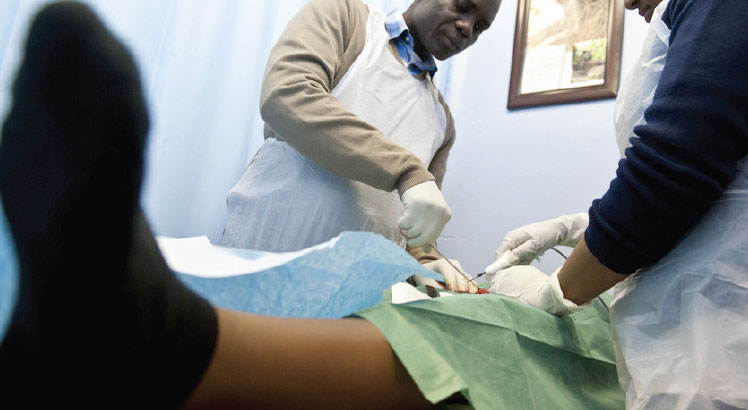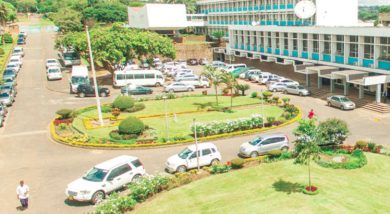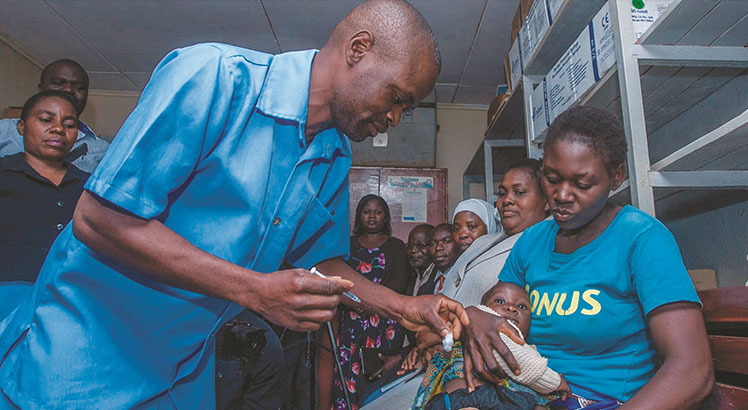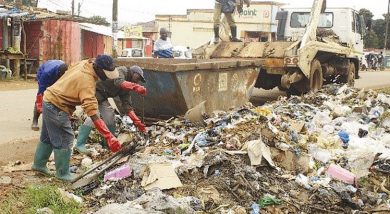Demand for male circumcision falls
Since 2012, Malawi has been among 14 African countries that have added voluntary medical male circumcision (VMMC) to their weapons in the global fight to end the HIV and Aids epidemic by 2030.
Studies endorsed by the World Health Organization (WHO) and the Joint United Nations Programme on HIV/Aids (UNAids) in 2007 show that VMMC reduces the risk of HIV infection by 60 percent.
However, records show that demand for the service is declining nationwide.
Blantyre district VMMC coordinator Francis Phiri says the declining uptake has been unmistakable since 2022.

“The count more than doubled from 13 648 in 2020 to 32 473 in 2021, but dropped to 16 149 a year later. In 2023, the number further declined to 5 889,” he says.
Salima District HIV and Aids programme coordinator Praise Jezman laments similar declines in boys and men taking the cut.
He attributes the slump to scanty campaigns to sensitise communities to the importance of the strategy.
“Previously, there were many partners supporting VMMC community awareness campaigns, but the district doesn’t have any partner,” says Jezman.
With dwindling support, even the VMMC vans and clinics seldom go to hard-to-reach populations.
According to National Aids Commission (NAC) preventive and management officer Francis Mabedi, the decline in VMMC demand threatens the country’s battle to roll back new infections.
The country recorded about 20 000 new infections in 2020 and a projected 15 000 last year, NAC reports.
The official figures show a dramatic rise and fall in nationwide VMMC queues from 145 759 in 2021, about 258 800 in 2022 and 191 161 last year.
“VMMC contributes positively to HIV prevention although more could be done for more men to access the service,” Mabedi says.
He urges women to encourage men to go for medical circumcision, which also reduces the risk of cervical cancer in women.
Family Health Services (FHS), formerly PSI Malawi, has circumcised more than 70 200 men since 2020.
FHS deputy executive director Chiwawa Nkhoma says the initiative has recorded rising numbers and expansion in target districts, indicating its growing reach and impact.
She blames the sudden decrease in demand to natural disasters.
Nkhoma states: “Recent years have presented unforeseen challenges, including the disruptive effects of natural disasters such as cyclones and disease outbreaks such as Covid-19 and cholera.
“These events have exerted a considerable impact on the programme’s operations.
“In some instances, we have had to suspend service provision in the face of these crises, leading to a slowdown in the uptake of VMMC services.”
She indicated that the demand is higher among men in urban settings than their rural counterparts.
Says Nkhoma: “Urban areas such as Blantyre have a higher population density, greater accessibility and better infrastructure and transport networks. As a result, men in urban centres find it easy to access VMMC services as clinics are more readily available near their homes or workplaces.”
The discovery of Malawi’s first Covid -19 case in April 2020 gave rise to restrictions in travel and meetings which disrupted VMMC inroads.
Indicators show that the annual count of VMMCs decreased by nearly a third since 2020 when Covid started spreading beyond a live animal market in China.
Civil Society Advocacy Forum on HIV and Aids vice-chairperson Ulanda Mtamba is worried that the country keeps missing VMMC targets at a time new HIV infections are increasing.
She says it is ironic that neighbouring countries that are similarly haunted by public health emergencies and climate-related disasters have “picked up and achieved more” in VMMC uptake.
Mtamba says: “At country level, key stakeholders such as civil society organisations and community leaders, both religious and traditional, are supposed to create demand for VMMC services by sensitising their communities. But these groups are not fully supported.
“We need to engage these community influencers to tackle myths and misinformation that also affect VMMC. Some associate male circumcision with certain religious practices or cultures.”
She further bemoaned low funding towards VMMC activities.
Journalists Association Against Aids (JournAids) is pioneering science cafés for media practioners in partnership with the Aids Vaccination Advocacy Coalition. The interactive sessions promote the sharing and reporting of accurate scientific facts, including new HIV prevention studies and innovations.
JournAids director Dingani Mithi says spreading accurate information would help tackle misconceptions and boost demand for male circumcision.
Clinical trials also show that men circumcised by medical staff in clinical settings are less likely to acquire sexually transmitted infections, including HIV, syphilis, genital ulcers, herpes and human papillomavirus which causes cervical cancer.





